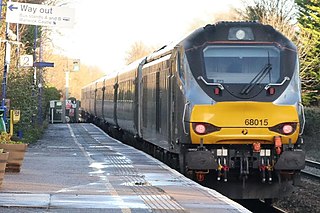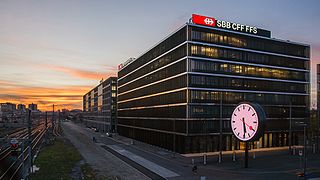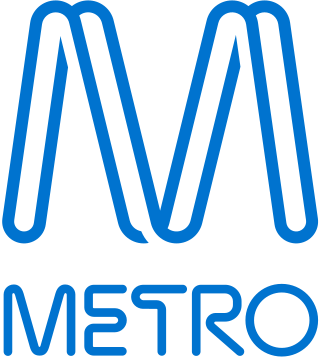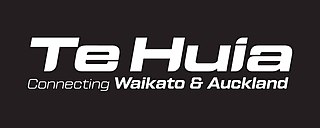
Central Trains was a train operating company in the United Kingdom owned by National Express that operated a variety of local and inter-regional trains from 2 March 1997 until 11 November 2007.

Trenitalia c2c Limited, trading as c2c, is an English train operating company owned by Trenitalia that operates the Essex Thameside railway franchise. It manages 25 stations and its trains call at 28. c2c provides commuter services from its London terminus Fenchurch Street and from Liverpool Street to east London and parts of Essex along the London, Tilbury and Southend line.

Chiltern Railways, formally The Chiltern Railway Company Limited, is a British train operating company that has operated the Chiltern Railways franchise since July 1996. Since 2009, it has been a subsidiary of Arriva UK Trains.

Swiss Federal Railways is the national railway company of Switzerland. It is usually referred to by the initials of its German, French, and Italian names, either as SBB CFF FFS, or used separately. The Romansh version of its name, Viafiers federalas svizras, is not officially used. The official English abbreviation is "SBB", instead of the English acronym such as "SFR", which stands for Swiss Federal Railways itself.

Great Western Railway (GWR) is a British train operating company owned by FirstGroup that operates the Greater Western passenger railway franchise. It manages 197 stations and its trains call at over 270. GWR operates long-distance inter-city services along the Great Western Main Line to and from the West of England and South Wales, inter-city services from London to the West Country via the Reading–Taunton line, and the Night Riviera sleeper service between London and Penzance. It also provides commuter and outer-suburban services from its London terminus at Paddington to West London, the Thames Valley region including parts of Berkshire, parts of Buckinghamshire and Oxfordshire; and regional services throughout the West of England and South Wales to the South coast of England. Great Western Railway also provides and maintains the Electrostar Class 387 fleet for Heathrow Express.

Northern Rail, branded as Northern, was an English train operating company owned by Serco-Abellio that operated the Northern Rail franchise from 2004 until 2016. It was the primary passenger train operator in Northern England, and operated the most stations of any train operating company in the United Kingdom. Northern Rail was replaced on 1 April 2016 by Arriva Rail North.

The Regional Fast Rail project was a rail transport project undertaken by the State Government of Victoria, Australia, between 2000 and 2006 aimed at improving rail services on the Victorian regional railway network, specifically to reduce travel times, enhance service frequency and safety.

Manchester Airport station is a railway, tram, bus and coach station at Manchester Airport, England which opened at the same time as the second air terminal in 1993. The station is 9+3⁄4 miles (15.7 km) south of Manchester Piccadilly, at the end of a short branch from the Styal Line via a triangular junction between Heald Green and Styal stations. Manchester Metrolink tram services were extended to the airport in 2014 and operate to Manchester Victoria.

A passenger information system, or passenger information display system, is an automated system for supplying users of public transport with information about the nature and the state of a public transport service through visual, voice or other media. It is also known as a customer information system or an operational information system. Among the information provided by such systems, a distinction can be drawn between:

A public transport timetable is a document setting out information on public transport service times, to assist passengers with planning a trip. Typically, the timetable will list the times when a service is scheduled to arrive at and depart from specified locations. It may show all movements at a particular location or all movements on a particular route or for a particular stop. Traditionally this information was provided in printed form, for example as a leaflet or poster. It is now also often available in a variety of electronic formats.

East Midlands Trains (EMT) was a British train operating company owned by the transport group Stagecoach, which operated the East Midlands franchise between November 2007 and August 2019.
In public transportation, schedule adherence or on-time performance refers to the level of success of the service remaining on the published schedule. On time performance, sometimes referred to as on time running, is normally expressed as a percentage, with a higher percentage meaning more vehicles are on time. The level of on time performance for many transport systems is a very important measure of the effectiveness of the system.
A through service is a concept of passenger transport that involves a vehicle travelling between lines, networks or operators on a regularly specified schedule, on which the passenger can remain on board without alighting. It may be in form of either the following:

Metro Trains Melbourne, often known simply as Metro, is the franchise operator of the electrified suburban passenger service on the Melbourne rail network. Metro Trains Melbourne is a joint venture between Hong Kong-based MTR Corporation (60%), John Holland Group (20%) and UGL Rail (20%). The three constituent companies are also partners in the Metro Trains Sydney joint venture, which has operated the Sydney Metro network since 2019.

Greater Anglia is a train operating company in Great Britain owned as a joint venture by Abellio, the international arm of the state-owned Dutch national rail operator Nederlandse Spoorwegen, and the Japanese trading company Mitsui & Co. It operates the East Anglia franchise, providing the commuter and intercity services from its Central London terminus at London Liverpool Street to Essex, Suffolk, Norfolk and parts of Hertfordshire and Cambridgeshire as well as many regional services throughout the East of England.

NSW TrainLink is a train and coach operator in Australia, providing services throughout New South Wales and the Australian Capital Territory, along with limited interstate services into Victoria, Queensland and South Australia. Its primary intercity and regional services are spread throughout five major rail lines, operating out of Sydney's Central railway station.

Arriva Rail North, branded as Northern by Arriva was a train operating company in Northern England which began operating the Northern franchise on 1 April 2016 and inherited units from the previous operator Northern Rail. A subsidiary of Arriva UK Trains, Northern was the largest train franchise in the United Kingdom in terms of the size of the network and the number of weekly services run. Its trains called at 528 stations, about a quarter of all stations in the country; of these stations 476 were operated by Northern. On 1 March 2020, Arriva Rail North Limited ceased to operate and all operations were handed to HM Government's Operator of Last Resort.

First MTR South Western Trains Limited, trading as South Western Railway (SWR), is a British train operating company owned by FirstGroup (70%) and MTR Corporation (30%) that operates the South Western franchise.

Te Huia is a passenger train service between Hamilton, Papakura, and Auckland (Strand) in New Zealand. The service is a five-year trial with subsidies from the NZ Transport Agency and Waikato local authorities. The opening was delayed because of the COVID pandemic and the need to replace some rail track. A new starting date was announced, and the service began on 6 April 2021.

Northern Trains, branded as Northern, is a publicly owned train operating company in England. It is owned by DfT OLR Holdings for the Department for Transport (DfT), after the previous operator Arriva Rail North had its franchise terminated at the end of February 2020.

















